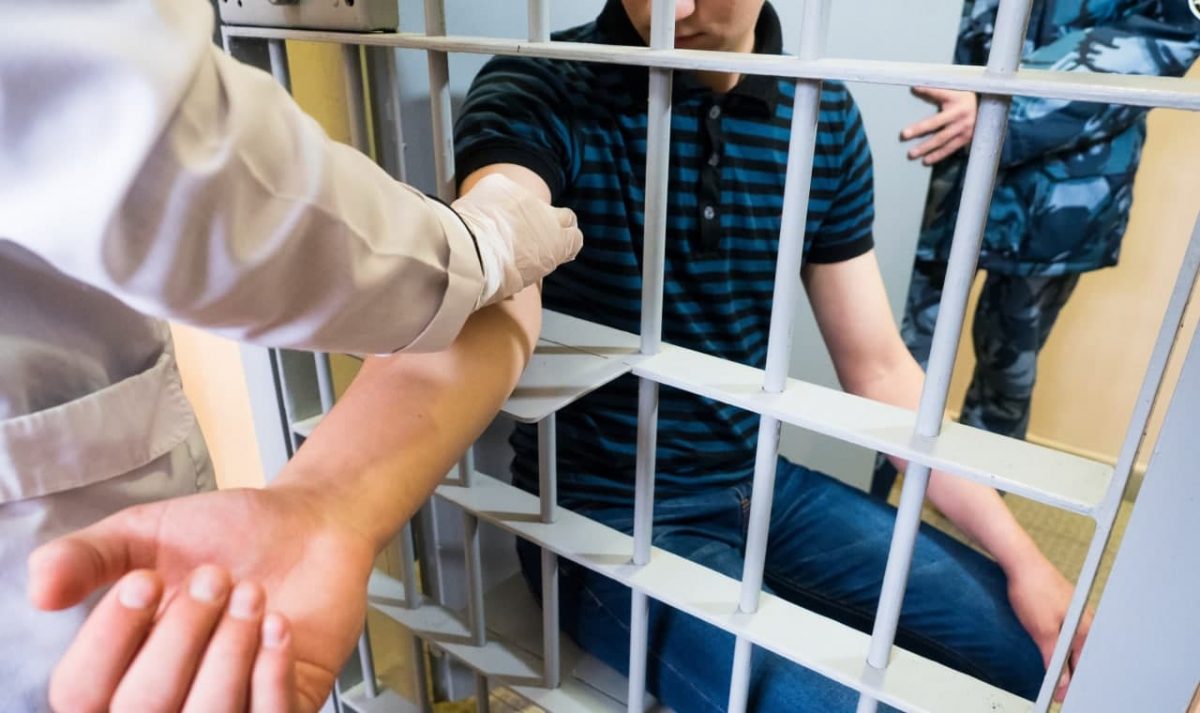In 2020, REActors received 225 requests for help from representatives of key groups from Georgia. Out of that, 191 were qualified as human rights violations, of which 8 were related to prisoners. It is still extremely difficult to even record such cases – the country’s penitentiary system remains one of the most closed, there is practically no access to information, and people themselves are reluctant to share painful issues. But REAactors still manage not only to document the fact of violation of rights, but also to help in solving the situation. One of the real stories below:
Help my child!
The beneficiary’s parent applied to the Service Center of the Harm Reduction Program in *** city, saying that his child, who is HIV positive, is serving his sentence in Penitentiary Establishment #***. His health condition is particularly deteriorating, he is malnourished and his eyesight is impaired. Numerous appeals and requests for a medical examination were followed only by humiliation and an invariable “no” from the local doctor.
The REActor immediately accepted the case and contacted a lawyer and a regional coordinator, who contacted the Penitentiary Service and the Public Defender to address the issue. After our intervention, the convict was examined by doctors, underwent all the needed examinations, X-ray and computer examinations. The beneficiary has the right to use the necessary medical services. If necessary, the medicines allowed in the penitentiary institution should be available to him.
What does the Law say?
According to Article 53 of the Law of Georgia on Medical Activities, when providing medical services to a prisoner, detainee, or captive, an independent medical practitioner is obliged to provide protection and treatment of his / her physical and mental health to the same quality and medical standards as non-detainees or detainees.
It is important for patients to be aware of their rights in the penitentiary system:
- The accused / convict has the right to receive the necessary medical services.
- In the penitentiary institution, as soon as the accused / convict is admitted, his / her health condition is checked.
- The medical care of the accused / convict is provided in accordance with the penitentiary health care standard, in compliance with the requirements for medical care established in the country in the field of health care.
- • The accused / convict has access to the necessary medications in accordance with the list of basic medicines allowed in the penitentiary institution, approved by the order of the Minister.
- If it is deemed appropriate to use branded medicine as prescribed by a doctor, the Ministry shall ensure the purchase of appropriate medicine and delivery to the prisoner.
- In case of a substantiated request, the accused / convict has the right to invite a personal doctor at his / her own expense with the permission of the Director of the Penitentiary Department.
- If the accused / convict cannot be treated at the medical unit of the detention / imprisonment facility, he / she may be transferred to the Accused / Convicted Medical Institution under the Penitentiary Department or to a general hospital.
- A person placed in a penitentiary institution enjoys all the rights provided by the Law of Georgia on Patients’ Rights.
Vulnerable means limited?
Unfortunately, in our penitentiary system, there are very frequent cases of restriction of access to medical services, which in itself extends to vulnerable groups who are serving their sentences. In this case, fortunately, our response was immediate, although it should be noted that not all convicts have the opportunity to vote for fans outside the facility. Consequently, it is possible for such a person to be left without assistance.
REAct (Rights – Evidence – Actions) is a tool for monitoring and responding to human rights violations at the community level. In the Eastern Europe and Central Asia region, the system is being implemented by the Public Health Alliance through the #SoS_project regional project. REAct enables you to document and respond to barriers related to human rights, access to services, HIV prevention and treatment.
In Georgia, the main implementing partner is the Georgian Harm Reduction Network (GHRN), which works in partnership with 14 other nongovernmental organizations to provide a wide range of services to key populations, including legal support and women’s rights services.


